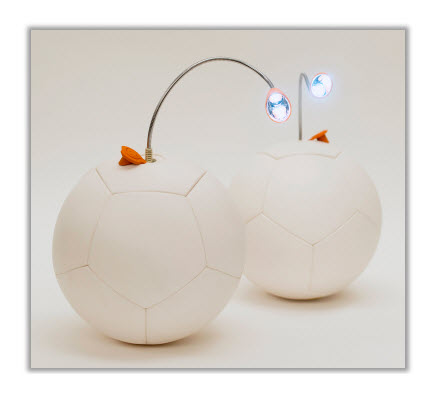Innovation is a loaded word. And while most connotations are positive, many also conjure images of the downsides of innovative technologies, such as labor force reductions due to workplace automation or potential environmental degradation as a result of cutting-edge natural-resource extraction methods.
Another example that’s currently making headlines comes from Google, a company that’s largely seen as synonymous with innovation. The company’s latest foray into Cloud-connected hardware has arrived in the form of Google Glass, a much-hyped technology that’s now in the hands of a select number of non-Google employees who paid $1,500 for the right to become the device’s earliest adopters.
But despite the new technology’s undeniable coolness factor, concerns over Google Glass’ privacy implications are becoming amplified, as discussed in this San Jose Mercury News article.
So when it comes to innovative ideas with seemingly zero negative connotations, examples are relatively difficult to uncover. Which is why I found this story, courtesy of SmartPlanet, so refreshingly encouraging.
uncover. Which is why I found this story, courtesy of SmartPlanet, so refreshingly encouraging.
The article discusses an innovation so conceptually simple, it’s amazing to consider the potential magnitude of positive impact the technology holds for much of the world’s non-industrialized, off-the-grid populations.
It’s called the Soccket—a soccer ball that generates electricity. Developed by Uncharted Play, a startup founded by four Harvard University students, the Soccket represents a truly innovative answer to a vexing problem: How to deliver electricity to those segments of the global population who have to rely on unclean, potentially dangerous methods of illuminating their dwellings come nightfall.
The company’s founders realized that in many such populations, soccer (or, football as it’s known outside North America) is an almost universally enjoyed pastime, and kids are seen playing with hand-crafted soccer balls made from whatever suitable materials they can muster.
However, once playtime ends, many of those same children return to darkened homes in which studying is impossible, and where, because of the darkness, adults are unable to earn extra income by working longer hours crafting the products that are the livelihoods of so many third-world families, such as making tortillas in countless Latin American villages.
Since the development of the first viable Soccket, pilot projects have shown that after just 30 minutes of play, the ball produces three hours of electric light via a small plug-in LED lamp.
So not only does the comparison between such innovations as Google Glass and the Soccket put into perspective the quality-of-life disparity between modernized and third-world societies, it also helps demonstrate that while some innovations carry potential downsides, others prove to be entirely beneficial, and hugely impactful for those whose day-to-day lives are immediately affected.



I “kickstarted” this! I can’t wait for it to come!
A worthy investment, Sarah. Thanks for reading and commenting.
For those who didn’t read the SmartPlanet article, Sarah’s referring to the company that developed the Soccket, Uncharted Play, and their use of a Kickstarter campaign to help boost production. They sought to raise $75,000 and blew past that with $92,296 raised from 1,094 donors.